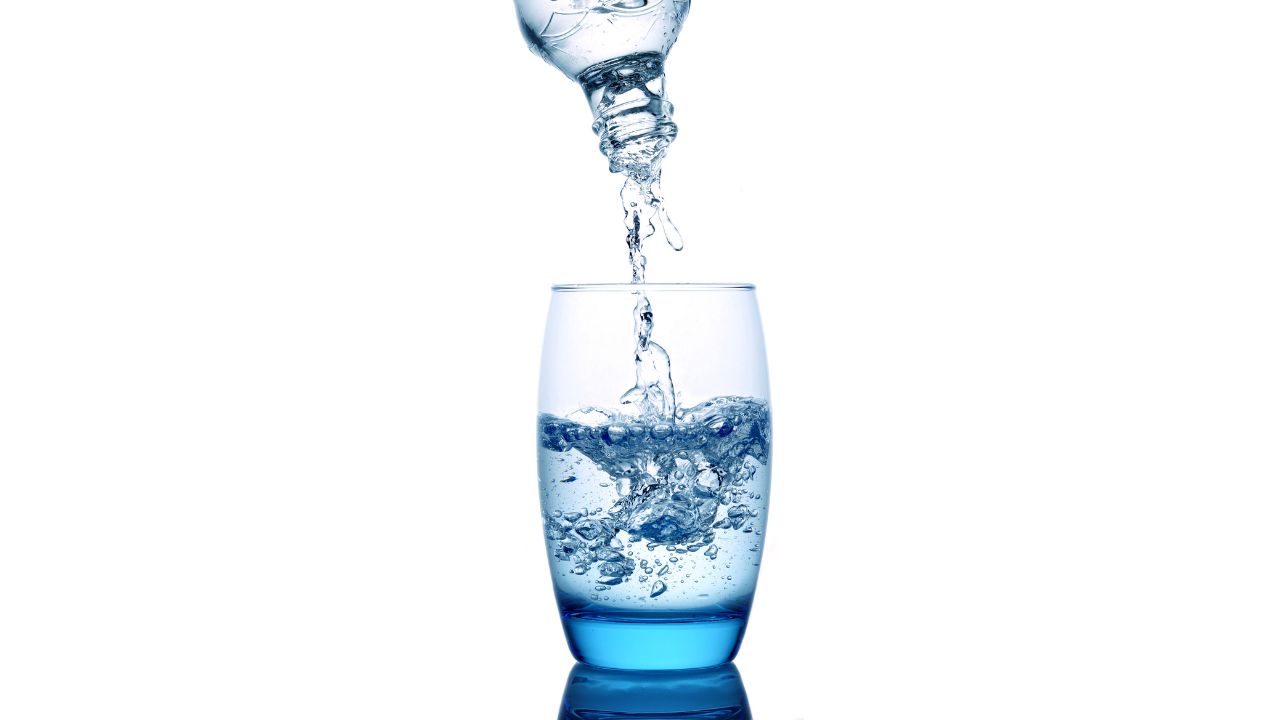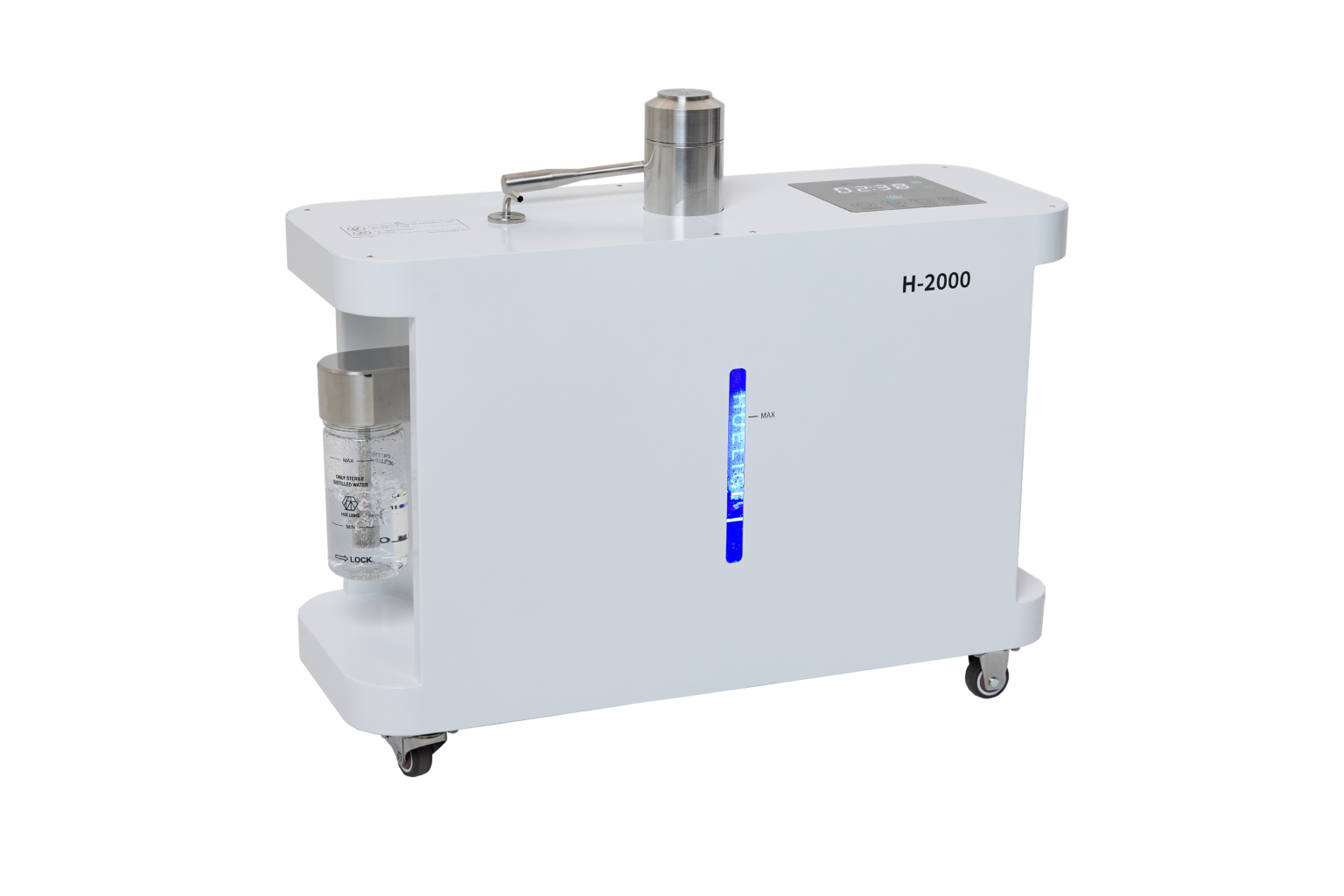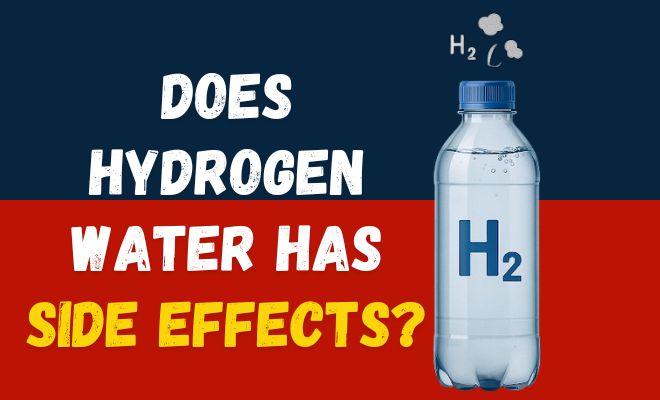Hydrogen water has been gaining attention in the wellness world, often promoted as a healthier alternative to regular water, thanks to its potential antioxidant benefits. Many people add it to their daily routine, hoping to reduce inflammation, boost energy, or support overall health. But while it’s generally considered safe, it’s natural to wonder if there could be hidden side effects or risks you should be aware of.
In this article, we’ll break down what hydrogen water is, explore the research on its safety, highlight potential hydrogen water negative side effects, and explain who should approach it with caution. Whether you’re curious about trying it or already drinking it, here’s what you need to know to make an informed choice.
What Is Hydrogen Water?
Hydrogen water is regular water (H₂O) that has extra molecular hydrogen gas (H₂) dissolved into it. This extra hydrogen is not the same as the hydrogen already bound to oxygen in H₂O molecules. Instead, it exists as free-floating hydrogen gas, which may act as a therapeutic antioxidant in the body.
 Experts claim hydrogen water may:
Experts claim hydrogen water may:
- Reduce oxidative stress
- Improve energy levels
- Enhance athletic performance
- Promote recovery
- Improve metabolic function
It’s available in bottles, pouches, or made fresh with a hydrogen water generator. Despite the hype, many consumers are left wondering if it’s truly beneficial or possibly harmful.
What Does the Science Say About Safety?
Since the early 2000s, researchers have been studying the health benefits of hydrogen gas, especially its ability to reduce oxidative stress and chronic inflammation, two major contributors to aging and disease.
A groundbreaking study published in Nature Medicine in 2007 by Ohsawa et al. found that molecular hydrogen (H₂) acts as a selective antioxidant. This means it targets and neutralizes harmful free radicals, particularly hydroxyl radicals, while leaving beneficial reactive oxygen species (ROS) untouched. These “good” ROS are important for cell signaling and immune function.
In the years following the 2007 discovery, numerous studies and clinical trials have evaluated hydrogen water for its potential to:
- Support cellular health
- Reduce inflammation
- Protect against oxidative damage
- Improve recovery after exercise or injury
Research published in peer-reviewed journals like Medical Gas Research and Scientific Reports supports hydrogen water’s high safety profile, even with daily, long-term use. The concentration of hydrogen in most of these studies typically ranges from 0.5 to 1.6 parts per million (ppm), which is commonly found in commercial hydrogen water products.
Despite these promising results, it’s important to note that long-term human data is still limited. Many existing studies are small in scale, short in duration, or conducted on animals, which means more robust clinical trials are needed to confirm hydrogen water’s long-term health effects and therapeutic potential.
Related Article: Hydrogen Bath Benefits
What Are the Potential Side Effects of Hydrogen Water?
Most available evidence suggests that hydrogen-infused water is safe for regular use, with no known toxic effects. However, like any wellness product, it’s essential to understand the side effects of hydrogen water, even if they are rare or mild. Some users have reported occasional discomfort, especially when consumed in large amounts or by individuals with specific health conditions.
Here are a few reported side effects to be aware of:
1. Digestive Discomfort
Some users report mild gastrointestinal discomfort, including other symptoms such as:
- Bloating
- Nausea
- Diarrhea
These symptoms may occur if the body is not used to the added hydrogen or if large amounts are consumed quickly.
2. Dizziness or Fatigue
In rare cases, some people report mild fatigue or a bit of lightheadedness when they first start drinking hydrogen-rich water. It’s usually temporary and may be the body’s way of adjusting to changes in antioxidants or metabolism.
3. Interaction with Certain Medications
There is limited evidence, but theoretically, hydrogen’s antioxidant properties could interact with medications that also modulate oxidative stress, such as chemotherapy drugs or immunosuppressants.
4. Gas Production in the Gut
Hydrogen can be produced naturally by gut bacteria. Adding more externally could exacerbate gas or bloating in some individuals, especially those with IBS or gut dysbiosis.
Important: These side effects are generally rare and mild. Most users report no adverse effects at all.
Is Hydrogen Water Good For You?
Hydrogen water isn’t just about potential side effects. It also has some promising benefits that may make it worth considering. Many studies suggest molecular hydrogen (H₂) acts as a selective antioxidant, which means it helps neutralize harmful free radicals in the body without interfering with essential reactive oxygen species (ROS) that support cell signaling and immune function.
Some potential benefits of drinking hydrogen water include:
- Reducing oxidative stress. It may help protect cells from damage linked to aging and chronic diseases.
- Supporting recovery. Hydrogen water could improve post-exercise recovery by lowering inflammation and muscle fatigue.
- Boosting metabolic function. Some research indicates it may improve energy metabolism and glucose regulation.
- Protecting organs. Preliminary studies suggest hydrogen water might support kidney, liver, and cardiovascular health.
While these benefits are promising, it’s important to remember that research is still emerging. Most human studies are small, and long-term effects are not yet fully understood. That said, hydrogen water is generally safe for healthy adults and may be a simple, low-risk addition to a balanced wellness routine.
Related Article: Hydrogen Water Benefits: Real or Just Hype?
Hydrogen Inhalation: A Stronger Substitute?

Hydrogen inhalation therapy involves breathing in hydrogen gas directly through a nasal cannula or mask, allowing for rapid absorption through the lungs into the bloodstream and tissues. This method delivers higher and more consistent concentrations of molecular hydrogen compared to hydrogen water, making it better suited for therapeutic use.
Research suggests that inhalation may be more effective and bioavailable than drinking hydrogen water.
Why?
- The lungs are highly efficient at absorbing gases, allowing rapid delivery to the body.
- Hydrogen gas can reach the brain and other sensitive tissues more directly.
- Inhalation allows for higher and more controlled doses than water.
In fact, many of the most promising human and animal studies, especially those related to neurological protection, inflammation, metabolic health, and even cancer support, use hydrogen gas via inhalation, not oral consumption.
For example, studies on hydrogen inhalation have shown promise in reducing neuroinflammation in conditions like Parkinson’s disease and improving outcomes after strokes. A 2024 study found that inhaling hydrogen gas reduced oxidative stress markers in patients following cardiac arrest, suggesting its potential application in critical care settings. Unlike hydrogen water, which delivers about 1.6 milligrams of hydrogen per liter, inhalation devices can provide significantly higher doses(1200 mL per minute) in a single session.
How does Hydrogen Inhalation work?
Hydrogen inhalation uses a device, often similar to an oxygen tank or a nasal cannula system, to deliver molecular hydrogen(mixed with oxygen) directly into your body. The process is straightforward: you sit comfortably, place the cannula in your nostrils, and breathe normally for 30–60 minutes, depending on the device and your health goals.
Once inhaled, hydrogen gas quickly enters your lungs, is absorbed into the bloodstream, and spreads throughout your body. Thanks to its tiny molecular size, hydrogen easily crosses cell membranes and can reach deep into tissues, especially areas under oxidative stress or inflammation. The antioxidant properties of hydrogen neutralize harmful free radicals, like hydroxyl radicals, which are linked to aging, chronic diseases, and tissue damage. This makes hydrogen inhalation therapy appealing for those seeking systemic benefits, such as improved brain health or reduced inflammation after surgery.
Unlike hydrogen water, which offers inconsistent absorption and rapidly diminishing hydrogen levels, inhalation ensures steady and high-concentration exposure, critical for achieving clinical benefits.
For practical use, sessions are typically done daily or a few times a week. Devices like those from Huelight are designed to be quiet and user-friendly, allowing you to inhale hydrogen while reading or relaxing.
Why choose Hydrogen Inhalation Therapy over Hydrogen water?
While both methods deliver molecular hydrogen, inhalation therapy offers distinct advantages.
According to Dr. Youn Sung Lee, a hydrogen therapy researcher, a single inhalation session can deliver the equivalent of 144 grams of hydrogen, far more than the 1.6 milligrams per liter in hydrogen water. This makes inhalation ideal for those seeking stronger therapeutic effects, such as managing chronic conditions like arthritis or supporting recovery from intense physical activity.
| Feature | Hydrogen Water | Hydrogen Inhalation |
| Absorption | Through the digestive tract (slower) | Directly via the lungs (faster) |
| Dose Control | Difficult to measure | Precisely adjustable |
| Hydrogen Stability | Escapes quickly from water | Continuously delivered |
| Therapeutic Use | Mild to moderate support | Suitable for chronic or acute care |
| Convenience | Portable bottles/tablets | Requires a home device (or a clinic) |
While hydrogen water may be a convenient introduction to hydrogen therapy, inhalation offers superior bioavailability, efficiency, and clinical relevance. It’s the preferred method in hospitals and wellness clinics in Japan, Korea, and increasingly in the U.S. for conditions ranging from stroke and heart disease to long COVID and fatigue.
Experience Hydrogen Inhalation at Home with Huelight

At Huelight, we provide advanced hydrogen inhalation devices designed to bring hospital-grade hydrogen therapy into your home safely, effectively, and conveniently.
Our systems are:
- Quiet and compact – Perfect for home or clinic use
- Easy to use daily – Just add distilled water and breathe normally
- Backed by real science – Built for anti-aging, cognitive support, and recovery
- Equipped with nanobubble delivery technology – For faster, deeper absorption
- Clinically aligned and safety certified – With FDA registration, CE, KC, RoHS, and NRTL certifications
Whether you’re enhancing your wellness routine, managing fatigue, or supporting recovery from chronic conditions, Huelight’s hydrogen inhalation systems offer a non-invasive, powerful way to reduce oxidative stress and promote healing at the cellular level.
Ready to Breathe Real Hydrogen Benefits?
Experience the clinically backed benefits of molecular hydrogen therapy, from neurological protection and inflammation reduction to metabolic and immune support.
👉 Consult with Huelight Experts today to find the right device for your health goals.












